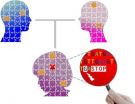(Press-News.org) COLUMBIA, Mo. – Nearly half of all pregnancies in the United States are unintended, and unplanned pregnancies are associated with poorer health and lower rates of educational and economic achievement for women and their children, according to the Centers for Disease Control and Prevention. However, research shows that the desire to avoid pregnancy does not necessarily increase women's use of contraceptives, although this discrepancy is not well understood. Now, MU researchers have found that levels of prior sex education and moral attitudes toward contraception influence whether women use contraceptives to prevent pregnancy.
"Our study showed that when women had more comprehensive sex education that consisted of information about healthy relationships, abstinence from sexual intercourse and how to properly use contraceptives, they were more likely to seek health care and use contraception compared to women who received abstinence-only sex education," said Valerie Bader, a clinical instructor in MU's Sinclair School of Nursing. "We also found that when women believe contraception is morally wrong, they were less likely to visit women's health clinics or use contraception to prevent unwanted pregnancies."
Bader and her colleagues analyzed data from a national survey of 900 unmarried women ages 18-29 to better understand how contraceptive knowledge and attitudes affect the likelihood that women will visit health clinics or use contraceptives to prevent unintended pregnancies. The findings provide a better understanding of the factors involved in women's decisions about contraceptives and can assist health professionals and educators in developing interventions to improve acceptance and correct use of contraceptives, Bader said.
"In general, individuals need more access to comprehensive contraceptive information so they can make informed decisions; however, this information can be difficult to obtain because the national dialogue about sexuality and contraception is very polarized due to individuals' moral attitudes," Bader said. "Family planning leads to healthier futures for moms and their children to a degree that few other health promotion efforts can match. Having children is a life-changing decision, and the opportunity to plan pregnancies can help people from all backgrounds be happy about pregnancy and prepared to raise children."
INFORMATION:
Bader's study, "The role of previous contraception education and moral judgment in contraceptive use," was published in the Journal of Midwifery & Women's Health earlier this year. Researchers Patricia J. Kelly, An-Lin Cheng and Jackie Witt at the University of Missouri-Kansas City also participated in the research.
Women's contraceptive use influenced by contraception education and moral attitudes
Family planning linked to better child and maternal health
2014-05-28
ELSE PRESS RELEASES FROM THIS DATE:
Toxins in the environment might make you older than your years
2014-05-28
Why are some 75-year-olds downright spry while others can barely get around? Part of the explanation, say researchers writing in the Cell Press journal Trends in Molecular Medicine on May 28, is differences from one person to the next in exposure to harmful substances in the environment, chemicals such as benzene, cigarette smoke, and even stress.
While the birth date on your driver's license can tell you your chronological age, that might mean little in terms of the biological age of your body and cells. The researchers say that what we need now is a better understanding ...
Cocktail party neuroscience: Making sense of voices in a crowd
2014-05-28
This news release is available in French. Listening to a conversation in the context of a cocktail party presents a great challenge for the auditory system. Without realizing it, one must extract, from a complex mixture of sound, the sound of a single voice to understand and track it. Researchers at Queen's University, lead by Dr. Ingrid Johnsrude, are studying how our brains meet that challenge, and allow us to distinguish specific voices in crowded, noisy and distracting environments. Her studies have revealed that the brain does not simply rely on the incoming ...
New research shows memory is a dynamic and interactive process
2014-05-28
This news release is available in French. Research presented by Morris Moscovitch, from the Rotman Research Institute at the University of Toronto, shows that memory is more dynamic and changeable than previously thought. Dr. Moscovich's results reveal that important interactions between the hippocampus and the neocortex, two regions of the brain, have different yet complementary roles in remembering places and events. These results highlight that different forms of memories exist in the brain, and that these are encoded in different, but interacting parts of the ...
Uncovering clues to the genetic cause of schizophrenia
2014-05-28
NEW YORK, NY (May 21, 2014) — The overall number and nature of mutations—rather than the presence of any single mutation—influences an individual's risk of developing schizophrenia, as well as its severity, according to a discovery by Columbia University Medical Center researchers published in the latest issue of Neuron. The findings could have important implications for the early detection and treatment of schizophrenia.
Maria Karayiorgou, MD, professor of psychiatry and Joseph Gogos, MD, PhD, professor of physiology and cellular biophysics and of neuroscience, and their ...
A path toward more powerful tabletop accelerators
2014-05-28
Making a tabletop particle accelerator just got easier. A new study shows that certain requirements for the lasers used in an emerging type of small-area particle accelerator can be significantly relaxed. Researchers hope the finding could bring about a new era of accelerators that would need just a few meters to bring particles to great speeds, rather than the many kilometers required of traditional accelerators. The research, from scientists at the U.S. Department of Energy's (DOE) Lawrence Berkeley National Laboratory (Berkeley Lab), is presented as the cover story in ...
PTSD treatment cost-effective when patients given choice
2014-05-28
A cost-analysis of post-traumatic stress disorder treatments shows that letting patients choose their course of treatment – either psychotherapy or medication – is less expensive than assigning a treatment and provides a higher quality of life for patients.
In a recent study, published in the Journal of Clinical Psychiatry, PTSD patients allowed to choose between therapies ended up costing about $1,622 less on average per patient per year compared with patients who were assigned treatment. Among patients not given a choice, treatment with prolonged exposure psychotherapy ...
Technology marketers should take consumer life-cycle into account: New Rotman study
2014-05-28
Toronto – If you want grandpa to start using the bank machine instead of standing in line for the teller, the best way to do it is to tell him to "Act now!" with a limited time offer for a banking card, shows new research.
A new study from the University of Toronto's Rotman School of Management suggests marketers should pay attention to where consumers are in their lifecycles when determining how to get them to adopt new technologies.
Marketers may have incorrectly assumed that older consumers avoid products such as debit or credit cards because they are technophobic ...
Supersonic spray delivers high quality graphene layer
2014-05-28
A simple, inexpensive spray method that deposits a graphene film can heal manufacturing defects and produce a high quality graphene layer on a range of substrates, report researchers at the University of Illinois at Chicago and Korea University.
Their study is available online in the journal Advanced Functional Materials.
Graphene, a two-dimensional wonder-material composed of a single layer of carbon atoms, is strong, transparent, and an excellent conductor of electricity. It has potential in a wide range of applications, such as reinforcing and lending electrical ...
NASA sees northern Indian Ocean System 92B's end
2014-05-28
The tropical low pressure area known as System 92B finally dissipated on the east central coast of India on May 27 after six days of struggling to develop. System 92B developed in the Bay of Bengal, Northern Indian Ocean basin on May 21. NASA's TRMM, Aqua and Suomi NPP satellites captured data on the low throughout the ups and downs it experienced until wind shear finally took its toll on the system.
NASA and the Japan Aerospace Exploration Agency's Tropical Rainfall Measuring Mission (TRMM) satellite passed over System 92B on May 19 and 20 and captured data on System ...
Lethal injection comes under new scrutiny after botched execution
2014-05-28
The botched execution in April of a man convicted of murder brought to the fore of national consciousness the precarious state of capital punishment. An article in Chemical & Engineering News (C&EN), the weekly news magazine of the American Chemical Society, details the history of lethal injection, what went wrong in April and how states are currently handling the practice, once deemed the most humane way to execute prisoners.
Jyllian Kemsley, a senior editor at C&EN, explains that the three-compound procedure prison officials use to carry out executions by lethal injection ...
LAST 30 PRESS RELEASES:
New knowledge on heritability paves the way for better treatment of people with chronic inflammatory bowel disease
Under the Lens: Microbiologists Nicola Holden and Gil Domingue weigh in on the raw milk debate
Science reveals why you can’t resist a snack – even when you’re full
Kidney cancer study finds belzutifan plus pembrolizumab post-surgery helps patients at high risk for relapse stay cancer-free longer
Alkali cation effects in electrochemical carbon dioxide reduction
Test platforms for charging wireless cars now fit on a bench
$3 million NIH grant funds national study of Medicare Advantage’s benefit expansion into social supports
Amplified Sciences achieves CAP accreditation for cutting-edge diagnostic lab
Fred Hutch announces 12 recipients of the annual Harold M. Weintraub Graduate Student Award
Native forest litter helps rebuild soil life in post-mining landscapes
Mountain soils in arid regions may emit more greenhouse gas as climate shifts, new study finds
Pairing biochar with other soil amendments could unlock stronger gains in soil health
Why do we get a skip in our step when we’re happy? Thank dopamine
UC Irvine scientists uncover cellular mechanism behind muscle repair
Platform to map living brain noninvasively takes next big step
Stress-testing the Cascadia Subduction Zone reveals variability that could impact how earthquakes spread
We may be underestimating the true carbon cost of northern wildfires
Blood test predicts which bladder cancer patients may safely skip surgery
Kennesaw State's Vijay Anand honored as National Academy of Inventors Senior Member
Recovery from whaling reveals the role of age in Humpback reproduction
Can the canny tick help prevent disease like MS and cancer?
Newcomer children show lower rates of emergency department use for non‑urgent conditions, study finds
Cognitive and neuropsychiatric function in former American football players
From trash to climate tech: rubber gloves find new life as carbon capturers materials
A step towards needed treatments for hantaviruses in new molecular map
Boys are more motivated, while girls are more compassionate?
Study identifies opposing roles for IL6 and IL6R in long-term mortality
AI accurately spots medical disorder from privacy-conscious hand images
Transient Pauli blocking for broadband ultrafast optical switching
Political polarization can spur CO2 emissions, stymie climate action
[Press-News.org] Women's contraceptive use influenced by contraception education and moral attitudesFamily planning linked to better child and maternal health




